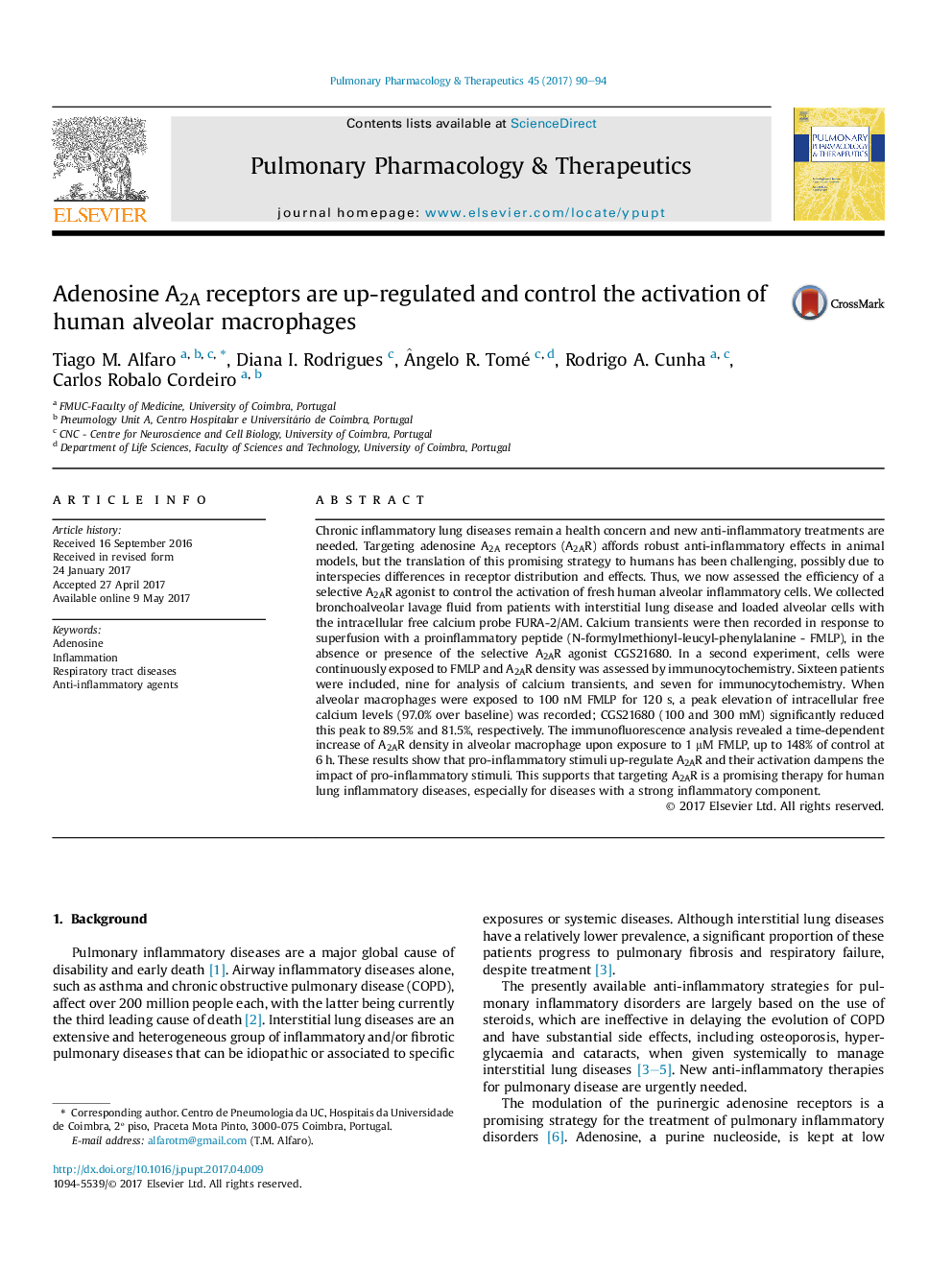| Article ID | Journal | Published Year | Pages | File Type |
|---|---|---|---|---|
| 5558147 | Pulmonary Pharmacology & Therapeutics | 2017 | 5 Pages |
Chronic inflammatory lung diseases remain a health concern and new anti-inflammatory treatments are needed. Targeting adenosine A2A receptors (A2AR) affords robust anti-inflammatory effects in animal models, but the translation of this promising strategy to humans has been challenging, possibly due to interspecies differences in receptor distribution and effects. Thus, we now assessed the efficiency of a selective A2AR agonist to control the activation of fresh human alveolar inflammatory cells. We collected bronchoalveolar lavage fluid from patients with interstitial lung disease and loaded alveolar cells with the intracellular free calcium probe FURA-2/AM. Calcium transients were then recorded in response to superfusion with a proinflammatory peptide (N-formylmethionyl-leucyl-phenylalanine - FMLP), in the absence or presence of the selective A2AR agonist CGS21680. In a second experiment, cells were continuously exposed to FMLP and A2AR density was assessed by immunocytochemistry. Sixteen patients were included, nine for analysis of calcium transients, and seven for immunocytochemistry. When alveolar macrophages were exposed to 100 nM FMLP for 120 s, a peak elevation of intracellular free calcium levels (97.0% over baseline) was recorded; CGS21680 (100 and 300 mM) significantly reduced this peak to 89.5% and 81.5%, respectively. The immunofluorescence analysis revealed a time-dependent increase of A2AR density in alveolar macrophage upon exposure to 1 μM FMLP, up to 148% of control at 6 h. These results show that pro-inflammatory stimuli up-regulate A2AR and their activation dampens the impact of pro-inflammatory stimuli. This supports that targeting A2AR is a promising therapy for human lung inflammatory diseases, especially for diseases with a strong inflammatory component.
